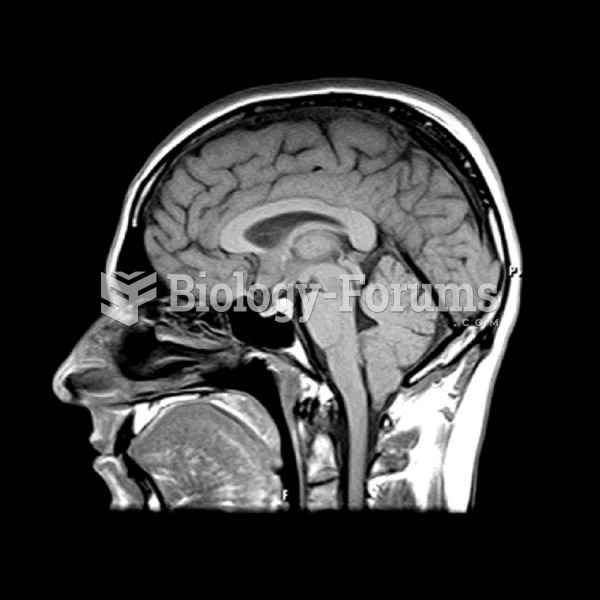This topic contains a solution. Click here to go to the answer
|
|
|
Did you know?
There are more bacteria in your mouth than there are people in the world.
Did you know?
Most women experience menopause in their 50s. However, in 1994, an Italian woman gave birth to a baby boy when she was 61 years old.
Did you know?
A headache when you wake up in the morning is indicative of sinusitis. Other symptoms of sinusitis can include fever, weakness, tiredness, a cough that may be more severe at night, and a runny nose or nasal congestion.
Did you know?
On average, the stomach produces 2 L of hydrochloric acid per day.
Did you know?
The first monoclonal antibodies were made exclusively from mouse cells. Some are now fully human, which means they are likely to be safer and may be more effective than older monoclonal antibodies.
 Photograph of a child with a cochlear implant. This device sends electrical impulses directly to the
Photograph of a child with a cochlear implant. This device sends electrical impulses directly to the
 Cerebral aneurysm. A cerebral aneurysm is the abnormal dilation of arteries supplying the brain, whi
Cerebral aneurysm. A cerebral aneurysm is the abnormal dilation of arteries supplying the brain, whi





